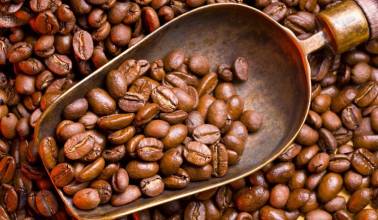Brazilian coffee has a unique, mild flavor, low acidity and moderate alcohol.
Brazilian coffee generally refers to coffee produced in Brazil. There is a wide variety of Brazilian coffee, the vast majority of which are unwashed and sun-dried, classified according to the name of the state of origin and the port of transport. Brazil has 21 states and 17 states produce coffee, but four of them produce the largest, accounting for 98% of the country's total output. The taste of Brazilian coffee has a low sour taste, with the sweet and bitter taste of coffee, the entrance is very smooth, but also with a hint of grass aroma, slightly bitter in the fragrance, smooth and smooth, with a pleasant aftertaste.
There are many large farms in Brazil, which run endless coffee plantations. They use machines to harvest and dry them. They are so efficient in automation that they regard coffee as a general agricultural material and completely abandon the flavor and flavor. As a result, many select coffee companies simply do not sell Brazilian beans so as not to demean themselves. In select coffee shops, there are still occasional Brazilian "santos" coffee, but they are all "Bourbon Santos" (bourban santos) rather than low-priced "Ping Dou Santos". Santos is a descendant of the bourbon species, hence the name for the port of Santos export. In the first three or four years before the coffee tree began to bear fruit, the beans were small and curved, with excellent flavor, and became the "Bourbon Santos". After that, the beans became bigger, flat in shape, no longer bent, and became "flat bean Santos". The flavor was not as good as before. Brazilian coffee can be found everywhere in Taiwan, but most of them are flat bean Santos. In fact, there are still high-quality coffee beans in various parts of Brazil, which will be sold on the market under their own name and are no longer commonly known as "Brazilian coffee." Some farms still retain the old bourbon species, with small particles of raw beans, obvious bending, red silk on the central line and the nickname "red center". Bourbon beans taste full, strong aroma, like drinking old wine, it is well worth a try.
Brazilian coffee taste with a low sour taste, with the sweet and bitter taste of coffee, the entrance is very smooth, and with a hint of grass, slightly bitter in the fragrance, smooth and smooth, the aftertaste can make people comfortable and pleasant. There are no outstanding advantages for Brazilian coffee, but there are no obvious defects. The taste is mild and smooth, the acidity is low, the mellow is moderate, and there is a hint of sweetness. All these soft flavors are mixed together. To distinguish them one by one is the best test for the taste buds, which is why many Santos fans love this kind of coffee, just because it is so mild and ordinary. Santos is suitable for ordinary baking, suitable for brewing in the most popular way, and is the best raw material for making Italian espresso and all kinds of fancy coffee.

Important Notice :
前街咖啡 FrontStreet Coffee has moved to new addredd:
FrontStreet Coffee Address: 315,Donghua East Road,GuangZhou
Tel:020 38364473
- Prev

Boutique Coffee beans Cubita Cuban Crystal Mountain Coffee Coffee latest introduction
Cubita is Cuban coffee, which is mainly exported to Japan, France, Germany, Ireland, Canada and other countries. The cubita coffee entering the Chinese market is all selected from the pollution-free Crystal Mountain coffee beans in the high altitude areas of Cuba, which is a typical Caribbean coffee bean. All the granules of coffee beans are strictly selected according to the standard of sieve 17-19, and the selected coffee beans have large particles and high maturity.
- Next

Boutique Coffee Kenya AA Coffee latest introduction and Information
Kenya AA, round beans, thick flesh, good heat permeability, high precision, French baking, rich and sweet taste, mellow thickness, good expansibility, aroma and sweetness are top grade. People in the coffee industry all think that Kenyan coffee is one of its favorite products because Kenyan coffee contains every feeling we want from a good cup of coffee. It has
Related
- Detailed explanation of Jadeite planting Land in Panamanian Jadeite Manor introduction to the grading system of Jadeite competitive bidding, Red bid, Green bid and Rose Summer
- Story of Coffee planting in Brenka region of Costa Rica Stonehenge Manor anaerobic heavy honey treatment of flavor mouth
- What's on the barrel of Blue Mountain Coffee beans?
- Can American coffee also pull flowers? How to use hot American style to pull out a good-looking pattern?
- Can you make a cold extract with coffee beans? What is the right proportion for cold-extracted coffee formula?
- Indonesian PWN Gold Mandrine Coffee Origin Features Flavor How to Chong? Mandolin coffee is American.
- A brief introduction to the flavor characteristics of Brazilian yellow bourbon coffee beans
- What is the effect of different water quality on the flavor of cold-extracted coffee? What kind of water is best for brewing coffee?
- Why do you think of Rose Summer whenever you mention Panamanian coffee?
- Introduction to the characteristics of authentic blue mountain coffee bean producing areas? What is the CIB Coffee Authority in Jamaica?

